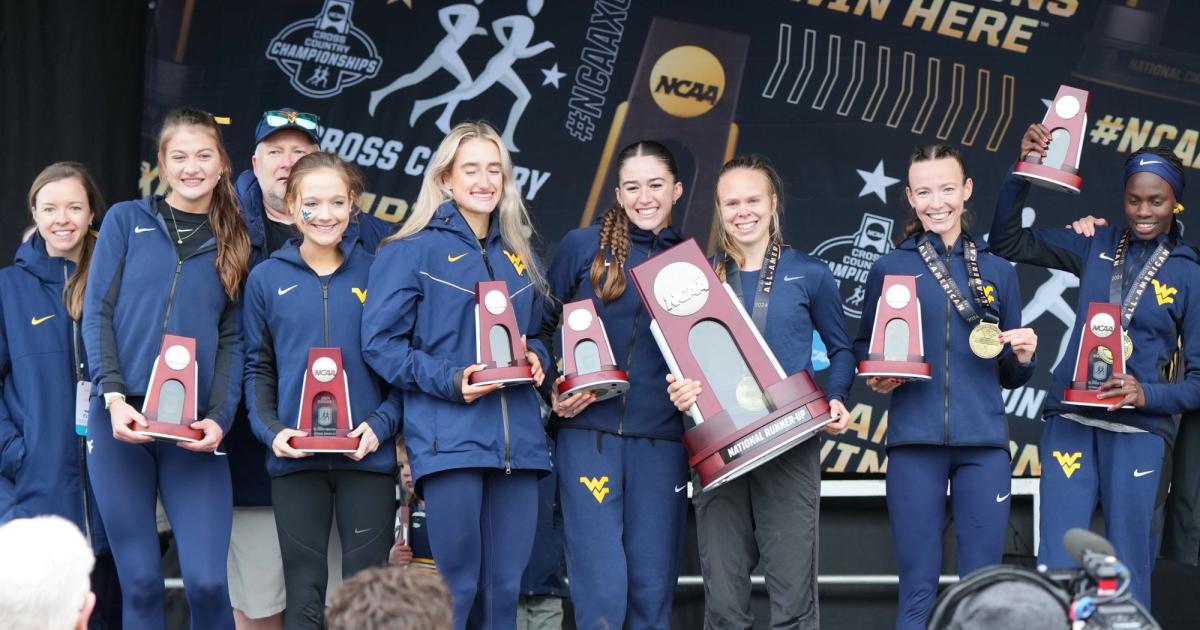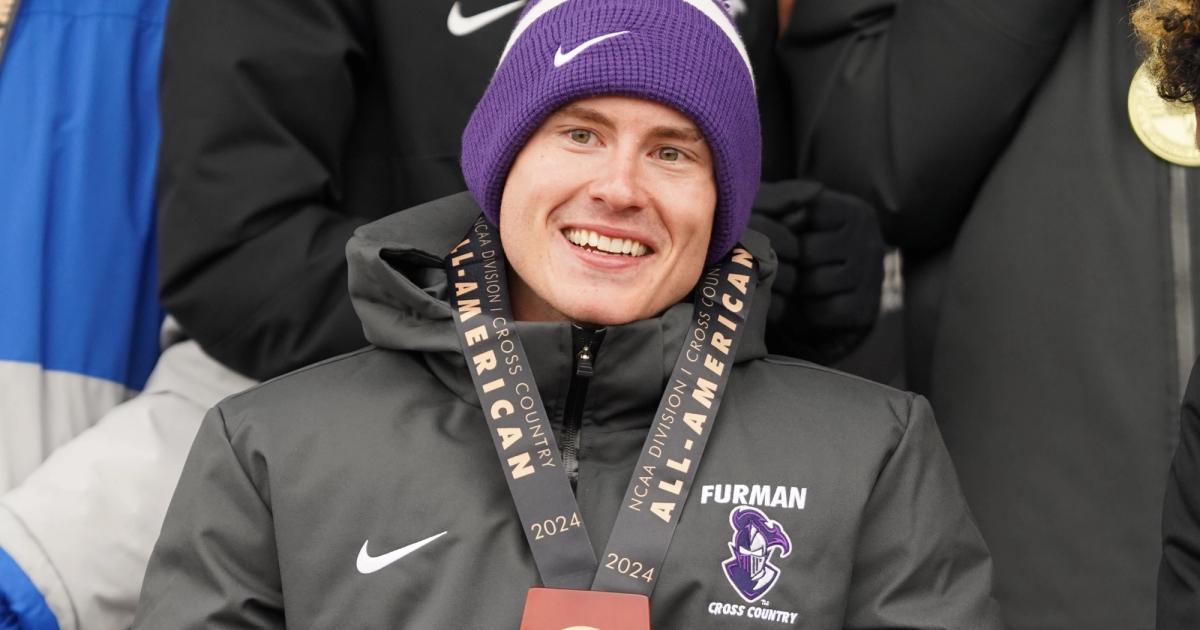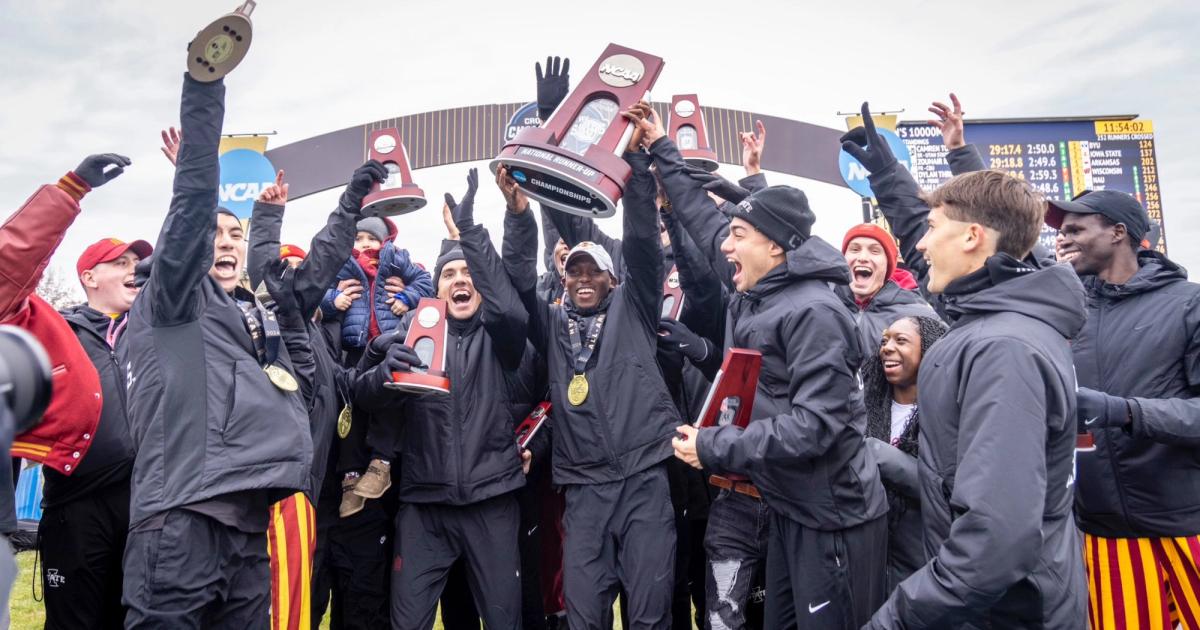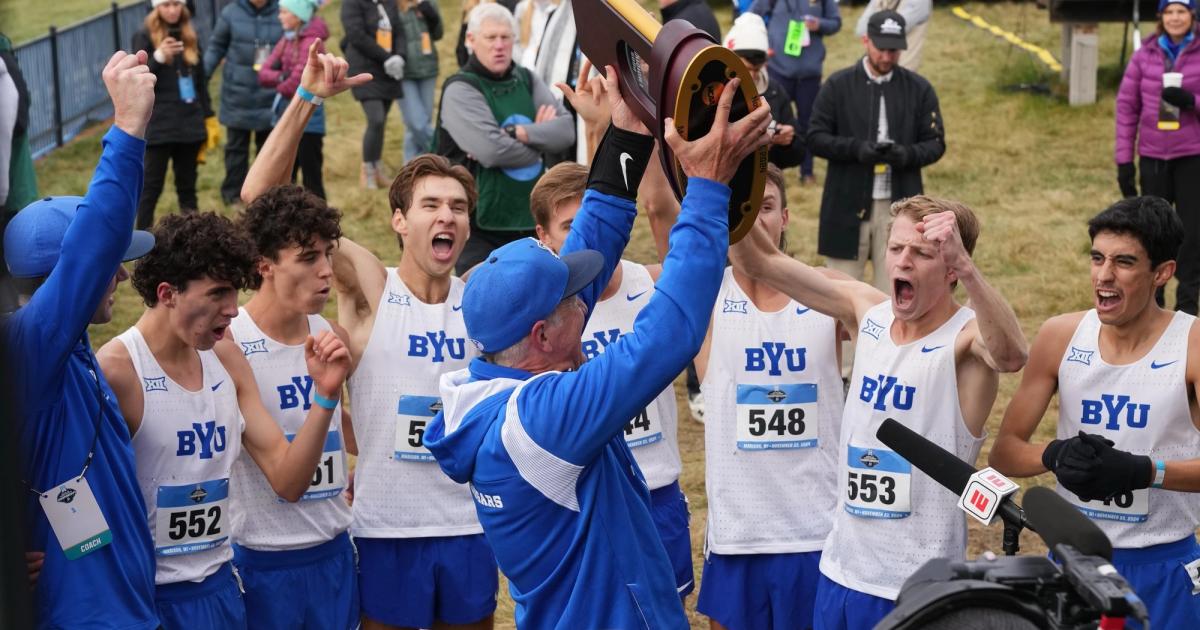By Jasmine Fehr
December 6, 2024
"When you're at the Olympics, you might not win—but the goal is to just be the best you can be. That's a pretty similar mindset that I'll take into this indoor and outdoor season."
Ceili McCabe and the West Virginia women’s cross country team delivered a season for the history books. The Canadian distance runner not only placed sixth individually at the 2024 NCAA Cross Country Championships, but she also led West Virginia to an unprecedented second place team finish.
The Mountaineers climbed the rankings throughout the season—from 28th all the way to fourth—before outperforming expectations on the biggest stage, finishing runner-up to BYU. It’s the ultimate underdog story.
McCabe’s success extends far beyond the NCAA. This summer, she represented Canada in the steeplechase at the Paris Olympics, adding to her resume of competing at the highest level after racing at the 2023 World Championships in Budapest. Over her career with the Mountaineers, McCabe has steadily become one of the top NCAA runners and has multiple All-American honors to her name.
In our conversation, Ceili talks about how she’s consistently improved throughout her career, shares what her training looks like at West Virginia, her team-sport background in high school, and the big goals she still hopes to accomplish. It’s an inspiring look at the mindset and work ethic of one of the greatest collegiate distance runners.
Just before the NCAA Cross Country Championship, we also had the chance to chat with West Virginia coach Sean Cleary. You can find our full Q&A here.
The following has been edited lightly for length and clarity.
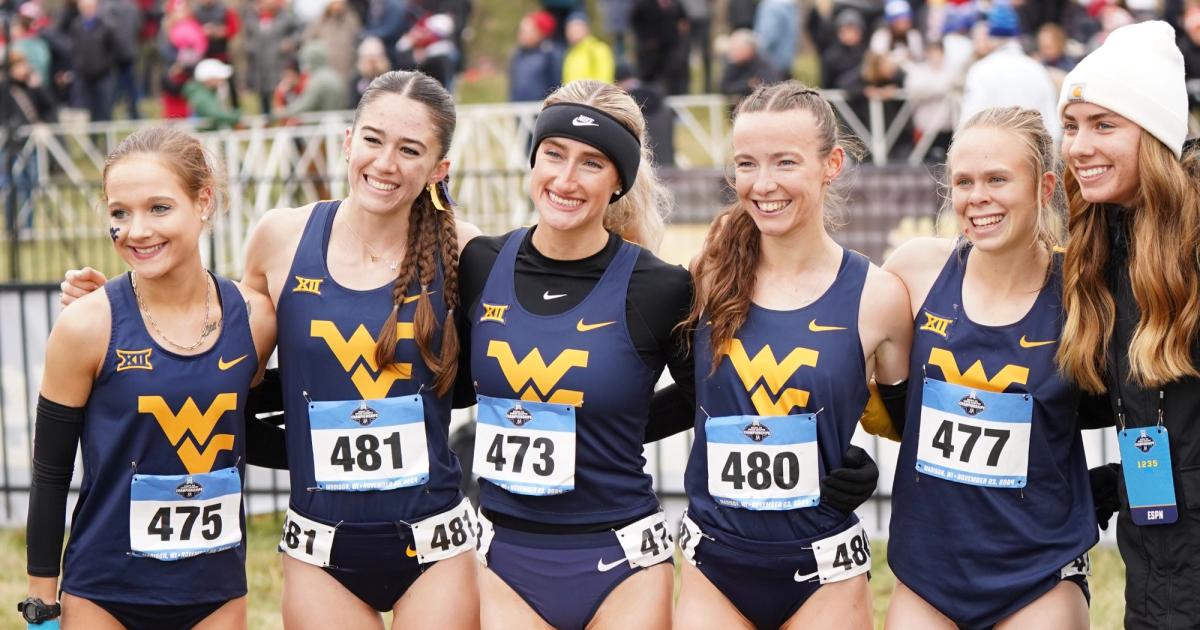
Mac Fleet / @macfleet
Jasmine Fehr: You just placed 6th at the NCAA Cross Country Championship and led the West Virginia women to a second-place team finish. How are you feeling coming off of the weekend?
Ceili McCabe: It’s a little bit to process. As a team, I knew we were pretty strong, but my coach just reiterated that there's a lot of teams that could have been in our position, trying to get into that top four. I didn't have any specific expectations for where our team could place. I was just hoping that it might be somewhere on the podium. To come second was not something that any of us really expected, so that itself was a lot to go through.
Individually, I didn't perform to where I was hoping I could. I knew it was going to be a pretty tough race to come first, second, or third—that was going to be something that was pretty difficult. I thought there was a chance, but with how it played out I wasn't as close as I had hoped. Falling back to that bigger team success was something that definitely helped because that was really the main goal of the whole season. It was really nice to see it come together.
Heading into this season, West Virginia wasn't actually ranked until a few weeks in. You ultimately finished the season in second as a team. At the start of the season, did you think that the team could finish that high at Nationals?
I honestly don't know if coming second really ever came into my mind. I knew we could be really strong. In the past few years, we've made it to NCAAs, but we've been in that back end of the field. It was a different mind frame where it was really exciting just to be competitive. I think the first thing that entered my mind was to just be a top ten team.
For a while that's been something that I've hoped we could do. That was really the main focus: just being competitive, working with what we had, trying to stay super steady, and hopefully improve.
At minimum, we wanted to keep delivering strong performances week in and week out. That was the main focus, but I don't think there was a time where I felt like we could be in contention to win or place second.
Going back to the summer, you represented Canada at the Olympics in the steeplechase. Can you share a little bit about your experience there?
There’s nothing that can really prepare you for that event. Having competed at the last couple of World Championships was an introduction to that level of competition. There's nothing quite like that sort of stage. I felt a little bit more prepared than I had in the past couple of years. Being able to take momentum from the spring and even the fall, I felt a little more prepared and competitive.
With [the Olympics], similar to NCAAs, I didn't quite perform to where I had hoped. I didn't get that outcome I was looking for. But I felt a little bit more competitive. Looking ahead to future big championships, it was a pretty cool experience to get at a relatively young age. It’s something that I hope to build off.
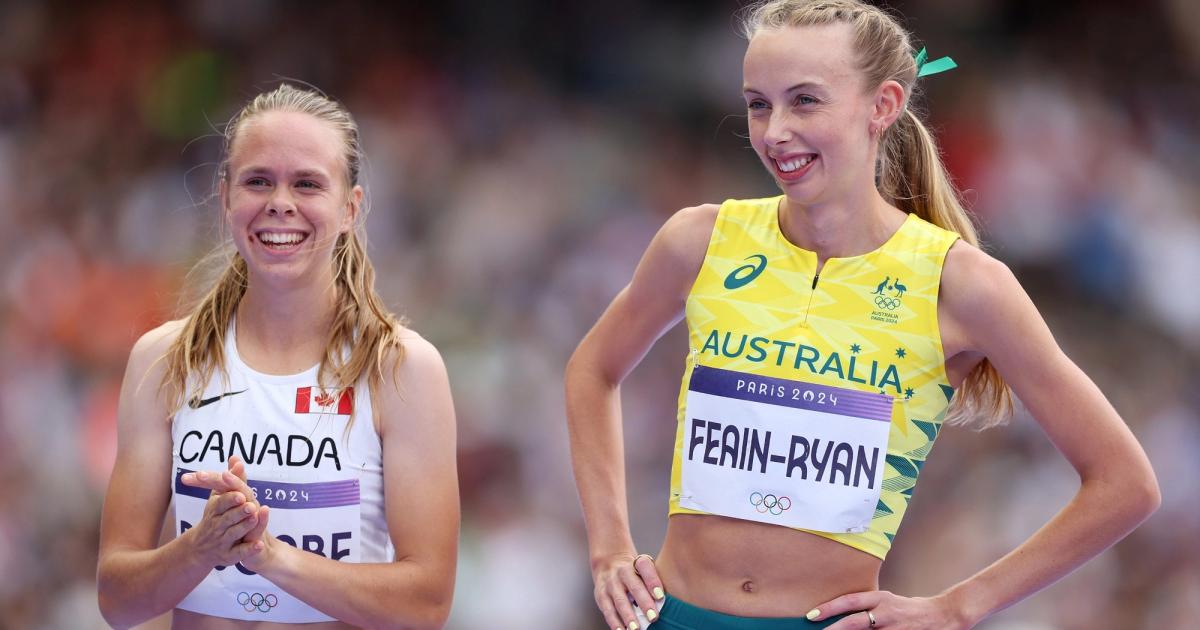
Courtesy WVU Athletics
Something that your coach, Sean Cleary, mentioned in our interview a couple of weeks ago is that you’ll sometimes bike five miles to a trail to cheer on your teammates. Is that accurate?
Yeah! Coming into college, I didn't run much and hadn't really been part of a running team before. I come from a team sport experience where it was a bit of a shift for me to not be around teammates every single day for every single practice. I realized that same team dynamic can work in the way that we have it at [West Virginia] if people are committed to supporting each other, even if it might look a little bit different.
That was something that was important to me, just being able to get out to the different workouts. I think that's a lot of where our team bonding and team environment is built: supporting each other in the different schedules that we have. It’s not always all five or six of us running an interval, but we'll be there in different ways for each other throughout the week.
It's definitely something that's important to me and sometimes our schedules don't always work out… Sometimes it’s a little bit tight getting back to class, but we make it work and it's definitely something that I value and like to do. It's probably one of my favorite parts of the week, just being at workouts and being around the team.
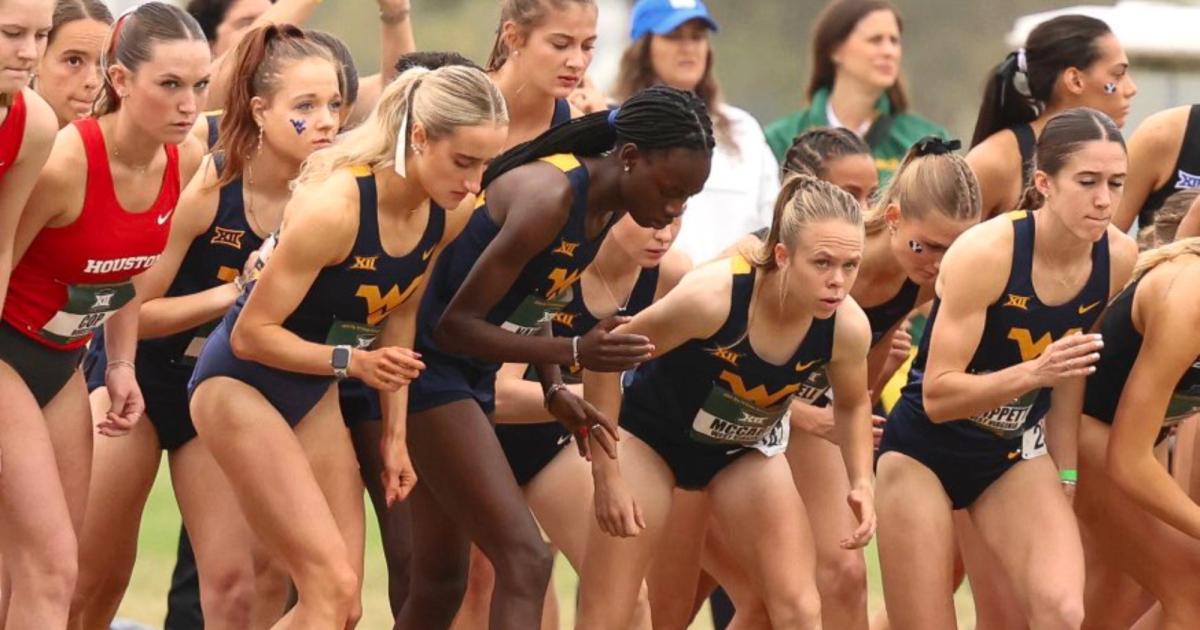
Courtesy WVU Athletics
You mentioned that you come from a team sport background. In high school, did you focus more on team sports or running?
Soccer was my main sport. I also played basketball, golf, and tennis. I kind of had planned to play soccer in college. That was the main goal, so running was relatively new to me. I joined my first club team at the end of grade 11 and then did that throughout grade 12—but I didn't really focus on it until getting to college.
It was definitely a new environment and it honestly felt like a new sport, just learning the differences between playing soccer, where you can go really hard all the time, whereas with running it’s definitely more of a drawn out process.
Reflecting on the past few years, you've consistently had top performances at both the collegiate and international level. What do you attribute your consistency to?
We definitely train in a way that’s conducive to the big picture of things: training for big championships and training to reach the pinnacle of what I want my career to be. Sean is very good at getting me as fit as I can be and at the same time tries to make slow and steady improvements. Even when I don't quite get it done at big championships and don't perform to where I had hoped at some of them, I always have a fairly steady foundation to fall back on.
I always feel like I'm somewhat prepared going in. You might not feel 100%, or even 95%, but I always feel generally prepared based on what we do that I’ll be able to perform at a decent level.
In terms of improvement year to year, it's been something that I've had to realize is not super linear all the time. There are definitely reasons why that trajectory isn't as smooth as you want it to be, whether it's an injury or something like that, but I think it’s about staying true to the things that you believe in with your training and sticking with that even when you don't see tangible results.
It’s tough sometimes, but then you get back on a roll and you see it coming more smoothly. That's a lot more enjoyable. But you have to learn to go through that whole process during the times that you feel stagnant.
"I think it’s about staying true to the things that you believe in with your training and sticking with that even when you don't see tangible results."
You mentioned that Sean gets you as fit as possible but at the same time doesn't go overboard with training. Without giving away too many details, can you share a bit about your training?
It's interesting because we actually go by minutes during the week. I probably have the same mileage because we run similar loops and it works out to be the same [amount of] time each week. But when we’ve tracked it, I’ve been running between 90 and 100 miles a week. That's something that has felt pretty sustainable to me.
I get up and go for a double in the morning. It's nothing too special, just kind of a shakeout. Then the afternoon run is a little bit more. I probably double four times a week and then get in a long run, probably around 16 miles. It's a pretty big backbone of our training. But that being said, it's flexible. It's not something that's an exact number. So on weeks that I’m feeling a little bit more tired, we just won't get as much mileage in and the runs will be a little slower.
We're pretty high mileage. In terms of some of my other teammates, Sean's pretty flexible. Some of the team cross trains a lot and has a very different schedule to me. Volume is something that I've slowly built over my time here, but it’s definitely not the same for everyone.
That’s interesting! In the Canadian system, it's a bit more common to train by minutes. What was that transition like adjusting from training in Canada to West Virginia?
It was weird for me just coming to a new sport in general. My freshman year, I was able to compete well, but I wouldn't say I was a runner yet. I hadn't learned the actual sport yet and didn’t have a lot of mileage underneath me in terms of volume. I was just trying to pick things up on the fly. It wasn't until 2020 and the pandemic that I had a block of several months to just run and not have any competitions. We set up a few time trials to keep us going towards something. It was a time where I could really develop and build my mileage.
Sean was really good about building that slowly. I definitely didn't run a ton my freshman year—but I felt like I was doing a lot since I was coming from not doing a lot. The idea of running every day was pretty foreign to me, so I think it was just about getting comfortable with running mileage. We weren't trying to hit any huge workouts or any big mileage weeks, but just getting into the routine of being able to run every day and feeling comfortable with that.
Building to where I am now has never felt like a huge jump or anything that’s really taken me out of my comfort zone. It’s just been trying to stay as consistent as possible with whatever I'm doing.
You've already competed at the Olympics and have the Canadian record in the steeplechase. What goals do you still want to check off your running bucket list?
Coming back to college, there's been a few championships where I haven't felt super satisfied with the performances I've had versus what I feel like I could have done. Maybe a few weeks before the championships, something comes up. Or I just don't feel like I quite got the performance out of my body that I wanted.
I think this year is another opportunity to do that: try to clean some things up, whether that's my recovery or how I'm approaching the last few weeks of each season. I think those are things I can improve. Hopefully I’ll have another chance at NCAA Indoors and the NCAA Outdoors in the spring.
It's hard to set specific goals, especially since right now there’s a lot of change in the NCAA scene. Then going into the outdoor season, Doris [Lemngole] is a really good talent. I wouldn't be surprised if there are a few records broken, especially in the steeplechase.
I think being prepared for that level of competition and being as competitive as possible is the main goal. Focusing on executing to the best of my ability and knowing that there will be really good competition is what I feel like will make me better in general. When you're at the Olympics, you might not win—but the goal is to just be the best you can be. That's a pretty similar mindset that I'll take into this indoor and outdoor season.
Any parting thoughts for our readers as you head into the rest of your final collegiate season?
I just hope to enjoy the rest of the NCAA season. It’s pretty cool to be a part of it, but I’m also excited to just watch a lot of the performances that are going to take place. It's a pretty exciting time in the NCAA and I'm lucky to be a part of it for a few more months. I’ll always be connected to the team here and will be supporting them for the next several years. I’m just grateful for the opportunities that I’ve had in the NCAA and am looking forward to an exciting few next months.
Congrats again and good luck throughout the indoor and outdoor seasons!
___________________
Keep up with all things track and field by following us across Instagram, X, Bluesky, Threads, and YouTube. Catch the latest episodes of the CITIUS MAG Podcast on Spotify and Apple Podcasts. For more, subscribe to The Lap Count and CITIUS MAG Newsletter for the top running news delivered straight to your inbox.
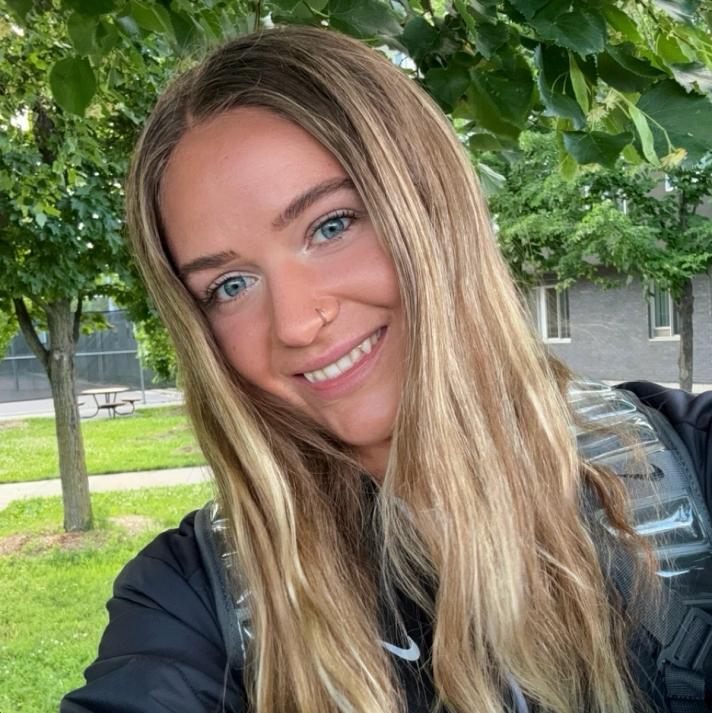
Jasmine Fehr
Jasmine Fehr produces the CITIUS MAG Podcast, manages our website, and shares content across our socials. She’s a marathon runner training in Flagstaff, Arizona. Her collegiate running career spanned the University of Portland and the University of Tennessee, where she earned a Bachelor’s degree in Psychology and Master’s degree in Communications.
